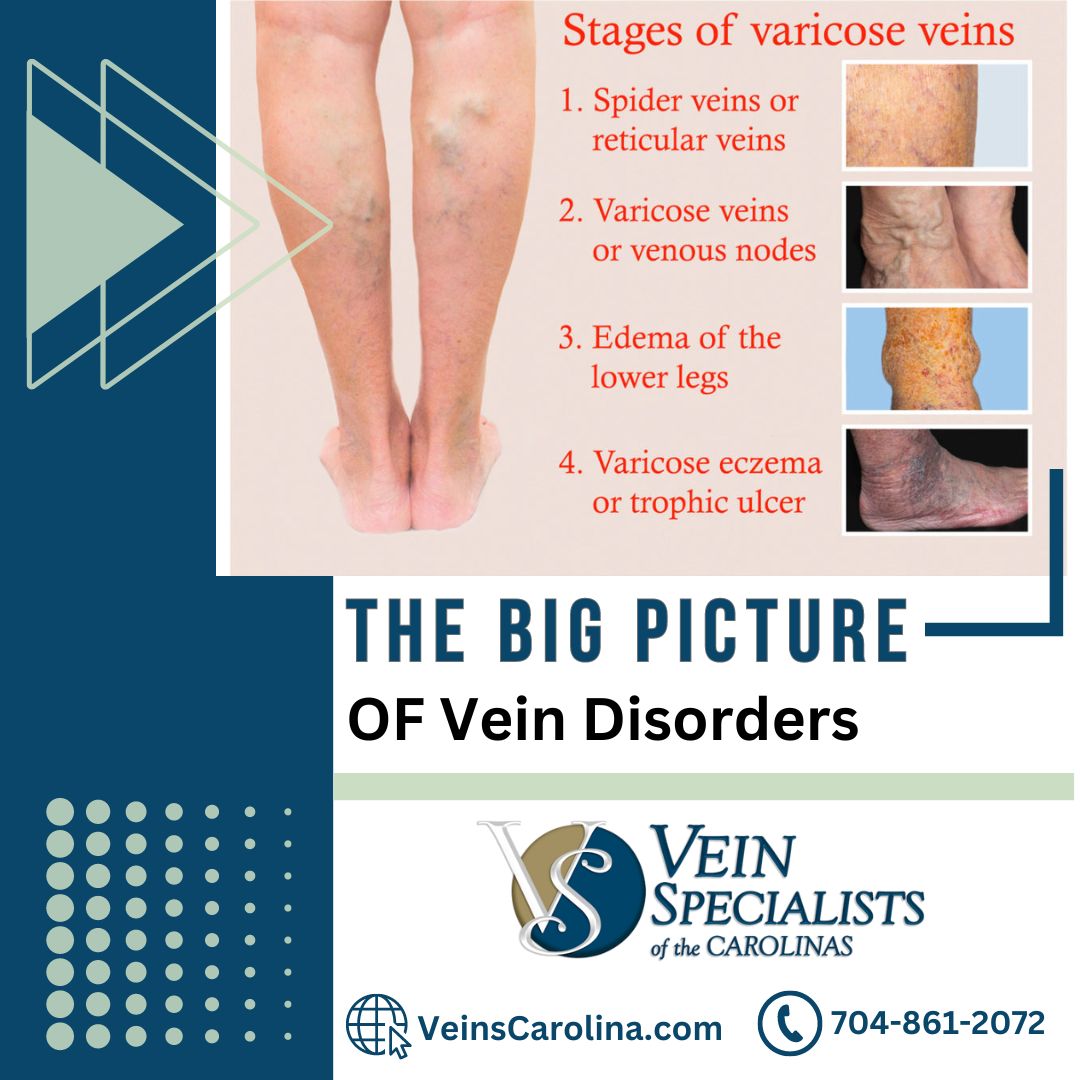At Vein Specialists of the Carolinas, we believe in seeing the big picture when it comes to vein disorders.
Understanding the underlying causes is crucial for effective treatment and management. One fundamental concept we emphasize is Chronic Venous Hypertension (CVH), often referred to as the “backing up” of the sewer system of the body.
CVH is rooted in improper emptying of veins, leading to increased back pressure in both the veins and the tissues they drain. Imagine a blocked drain causing water to overflow – this is analogous to what happens in the body with CVH. It’s a complex condition with two primary mechanisms of drainage disruption: reflux and blockage.
Reflux, characterized by the reversal of blood flow due to malfunctioning valves in veins, is the most common issue we encounter. Veins possess one-way valves that facilitate the upward flow of blood against gravity, aiding in returning it to the heart. However, when these valves fail, blood can flow backward, causing reflux. It’s akin to a traffic jam on a one-way street, leading to congestion and increased pressure within the veins. This reflux is a key contributor to various vein disorders, including varicose veins and chronic venous insufficiency.
Blockage, the other mechanism, occurs when the vein’s pathway is obstructed, impeding the normal flow of blood. There are two primary causes of blockage: internal vein blood clots (deep vein thrombosis or DVT) and external compression from structures outside the vein, such as in the case of May-Thurner syndrome. DVT can form within the deep veins of the legs, posing a risk of serious complications if not addressed promptly. May-Thurner syndrome involves compression of the iliac vein by the overlying artery, leading to reduced blood flow and potential clot formation.
Understanding these mechanisms of disruption is pivotal in diagnosing and treating vein disorders effectively. At Vein Specialists of the Carolinas, we employ advanced diagnostic tools and personalized treatment approaches to address each patient’s unique needs. From conservative measures like compression therapy to minimally invasive procedures such as endovenous ablation, our goal is to restore proper venous function and alleviate symptoms.
Beyond treating the symptoms, we strive to educate our patients about the importance of venous health and preventive measures. Lifestyle modifications, including regular exercise, elevation of legs, and wearing compression stockings, can help manage symptoms and reduce the risk of complications associated with vein disorders.
In conclusion, the big picture of vein disorders revolves around understanding Chronic Venous Hypertension and its underlying mechanisms of reflux and blockage. By addressing these issues comprehensively, we can effectively manage vein disorders and improve patients’ quality of life. At Vein Specialists of the Carolinas, all we do is veins, all day every day.
Schedule an appointment today and have your veins checked!
#VeinDisorders #ChronicVenousHypertension #Reflux #Blockage #VenousHealth #VeinSpecialists #AllWeDoIsVeins

